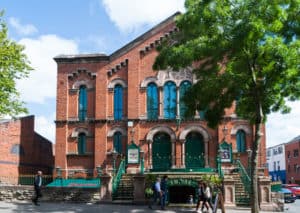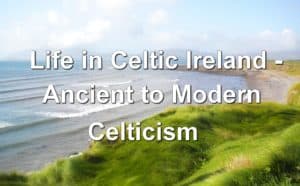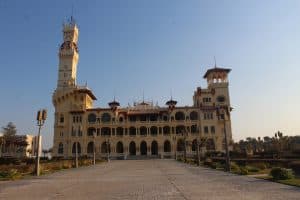The Voodoo Religion of Haiti: Discover the Reality Behind Misconceptions

Updated On: March 20, 2024 by Fatma Mohamed
Voodoo, or Vodou as it is known in Haiti, is a religion rich in ritual and steeped in history. It originated in the Caribbean nation and is a complex blend of African, Taino, and European influences, particularly from the Catholic faith. A monotheistic religion, Voodoo centres around the worship of a single supreme deity alongside a pantheon of spirits known as lwa. These spirits are seen as intermediaries between the divine and humanity, guiding and protecting followers.

In Haiti, Voodoo has been a source of strength and community, particularly during times of hardship. The practice became a fundamental part of Haitian culture during the transatlantic slave trade when enslaved Africans combined their traditional beliefs with elements of Christianity to form this unique religion. Despite its central role in the resilience and identity of the Haitian people, Voodoo has often been misunderstood and misrepresented internationally. Sensationalised stereotypes have obscured its true nature, which is based on a complex system of ethics, folk medical practices, and communal ceremonies that affirm life and honour ancestral connections.
Table of Contents
Historical Background of Voodoo in Haiti
Before delving into the roots, it’s pivotal to recognise that Voodoo is deeply woven into the fabric of Haitian history and identity, emerging from a crucible of cultural fusion and resistance.
The Arrival of African Religions
Our examination begins with the West African origins of Voodoo. It traces back to a time when West African Vodun, an intricate tapestry of spiritual practices and beliefs, was transported to the Caribbean by African slaves. The religious customs of the Dahomean, Kongo, Yoruba, and other African ethnic groups found their way to the crest of the New World, creating a profound religious footprint in what was then colonial Saint-Domingue. This cross-pollination of belief systems laid the foundations for what would evolve into Haitian Voodoo. More on the African roots of Voodoo can be explored through Definition, History, West African Vodun, & Facts.
Impact of Slavery and the Haitian Revolution
In the shadow of slavery, Haitian Voodoo blossomed as an undercurrent of unity and resilience among the enslaved. The rites and cosmologies of African religion facilitated a sense of community, offering solace and strength to our ancestors who faced brutal conditions. This collective spiritual framework would later galvanise slaves in their fight for freedom, intertwining with the Haitian Revolution to drive a successful rebellion against colonial powers. It is through this tumultuous period that Voodoo not only persisted but became a symbol of Haitian identity and independence. The transformative role of Voodoo in the revolution is detailed further in the account of Haitian Vodou.
Core Beliefs and Practices
In the Vodou religion of Haiti, the core beliefs and practices form a rich tapestry that blends spirit worship with ceremonial rituals. This fusion has shaped a unique and often misunderstood faith which holds deep significance for its followers.
Understanding the Lwa
In Vodou, the lwa (also known as loa) are powerful spiritual entities that act as intermediaries between the divine and humanity. These spirits are central to the religion and reflect a vast pantheon with each lwa possessing distinct personalities, stories and domains of life they oversee. Devotees form personal bonds with the lwa through offerings and rituals, seeking their guidance and protection. It’s important to note that while Vodou is often thought to be polytheistic, it is, in fact, monotheistic. The supreme deity, known as Bondye, is the ultimate creator, deriving from the concept of God in Catholicism. However, Bondye is considered distant, and thus the lwa are the ones who interact directly with the practitioners.
The Role of Rituals and Ceremonies

Rituals and ceremonies are fundamental to Vodou practice, serving as moments of communion with the spiritual world. These events range from private services in a devotee’s home to large public festivals. Ritual elements often include the use of sacred objects, drumming, chanting, and dancing, which facilitate the arrival of lwa during ceremonies. Through this active participation, practitioners honour the lwa and ancestors, seeking their blessings and advice. It’s the melding of these practices with elements of Catholicism and the profound respect for ancestors that defines Vodou’s distinctive nature.
Influence of Catholicism
In our exploration of the Voodoo religion of Haiti, we observe a profound intertwinement with Catholic practices, particularly through the syncretism with Catholic saints and the veneration of spirits. This blend has led to a unique religious landscape where both Voodoo and Catholicism coexist.
Syncretism with Catholic Saints
We find that syncretic practices have allowed Voodoo practitioners to incorporate Catholic saints into their religion. Each saint is often associated with a Vodou spirit, known as a lwa. For instance, Saint Peter is recognised as Papa Legba, the gatekeeper of the spirit world. This mirrored veneration showcases the seamless blending of Catholic and Vodou beliefs, resulting in a harmonious coexistence between both religious entities.
Veneration of Spirits
The veneration of spirits in Voodoo is profoundly influenced by Roman Catholicism. The spirituality of the Catholic Church is reflected in the way Vodou followers honour the lwa during ceremonies, with parallels to the Catholic veneration of saints. Just as Catholics may pray to saints for guidance or intercession, Vodou practitioners will serve the lwa, offering them prayers and gifts in the hope of receiving their blessings and protection.
Ceremonial Practices
In Voodoo, every practice is rich with cultural significance, and each ritual meticulously blends music, movement, and offerings to engage with the spiritual realm.
Significance of Dance and Song
Dance and song are the heartbeats of Voodoo ceremonies, serving as a bridge between practitioners and the spiritual world. Drummers play intricate rhythms which invite participants to engage in dancing, a physical expression that facilitates spiritual communication. The singing that accompanies the dance consists of sacred songs that hold historical and spiritual weight, helping to call forth the spirits or ‘Loa.’
Animal Sacrifices and Offerings
Animal sacrifices are a solemn and respectful practice within Voodoo, where offerings are made to honour and please the Loa. These sacrifices are carried out with the utmost care and are seen as a necessary aspect of Voodoo rituals, providing vital sustenance to the spirits. Alongside, various offerings, which might include food, flowers, or other items, are presented to show reverence and thanks, contributing to the balance and harmony between the physical and spiritual realms.
Priesthood and Leadership
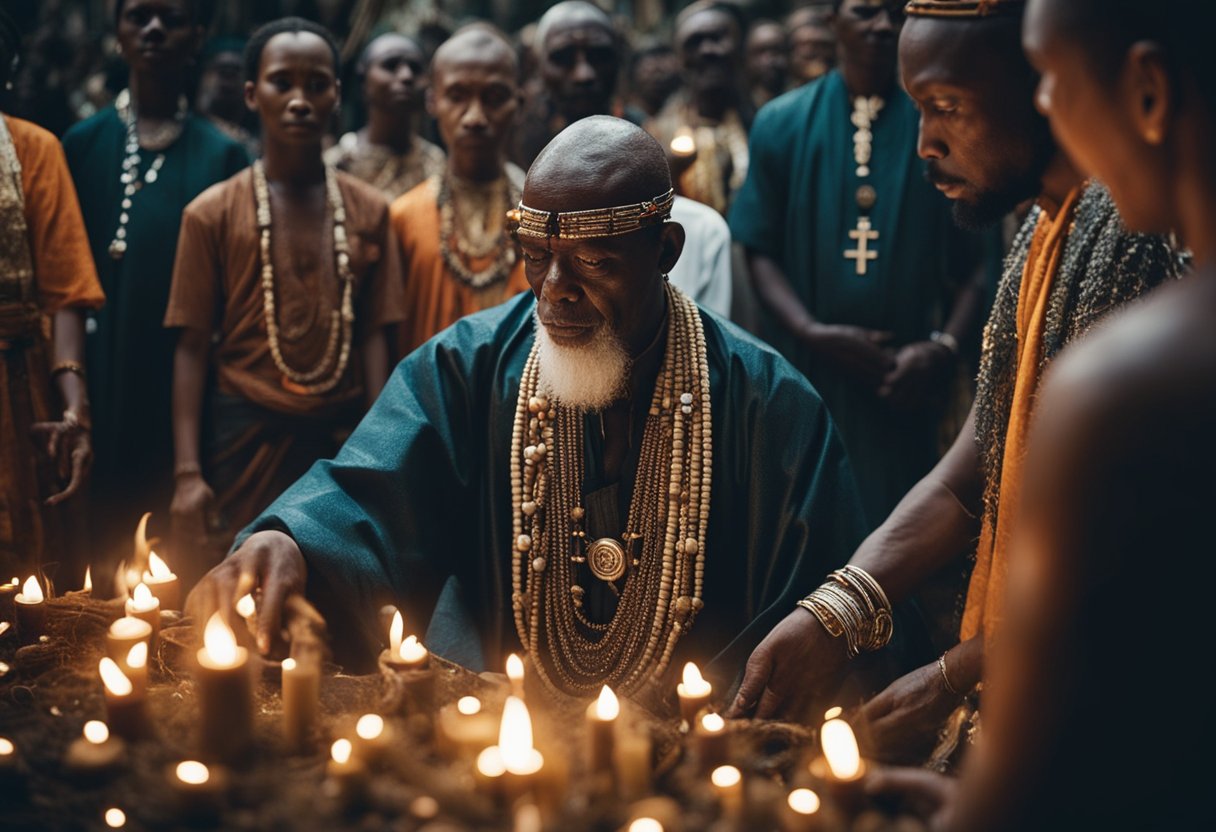
In Vodou, the roles of the priesthood, such as the Houngan and the Manbo, are central to the religious leadership and the educational framework of the tradition. These leaders are not only religious figures but also pivotal in the community as educators and cultural custodians.
Roles of Houngan and Manbo
Houngans and Manbos are the priests and priestesses of the Vodou religion in Haiti. A Houngan typically oversees religious ceremonies, offers guidance and healing, and plays a key role in community gatherings. The Manbo, as a female leader, shares these responsibilities, providing spiritual leadership and wisdom. Both figures are revered within their communities and embody the spiritual authority of Vodou.
Initiation and Education of Priests
The initiation of Vodou priests and priestesses involves a rigorous spiritual education. Known as kanzo, this process serves as a rite of passage for Houngans and Manbos and imparts the esoteric knowledge necessary for their roles. It includes learning sacred songs, dances, rituals, and the secrets of service to the lwa (spirits). Leadership in Vodou is thus deeply rooted in continual learning and personal transformation.
Spiritual Possession and Trance

In Haitian Vodou, spiritual possession is a vital practice where the lwa, or spirits, are invited to take part in rituals. When possessed, the faithful serve as vessels for the lwa, allowing these entities to “ride” them. This phenomenon is not about the loss of control but is a profound interaction between the human and the divine.
Key Aspects of Possession:
- Identity Transformation: An individual’s identity becomes a conduit for a specific lwa.
- Ritual Context: Possession typically occurs within the bounds of religious ceremonies.
During these trances, participants experience a profound exchange of energy. The boundary between the human and spirit realms blurs as the lwa enters one’s physical body, temporarily influencing speech, mannerisms, and actions to reflect their presence.
Trance States:
- Shared Energy Exchange: The energy of the lwa infuses the ceremony, affecting all present.
- Altered Consciousness: The person may enter a trance state, signalling the lwa’s presence.
These moments are essential for communal bonding and individual spiritual experiences. Through trance and possession, practitioners connect with the lwa, seeking guidance, healing, and protection. It’s important to understand that for practitioners, these are revered spiritual experiences deeply rooted in their cultural identity and religious beliefs.
Voodoo in the Societal Context
Voodoo, often spelt ‘Vodou’, is deeply woven into the fabric of Haitian society, impacting its identity and politics. Here, we’ll explore how it shapes the community and withstands socio-economic challenges.
Community and Identity
Vodou is more than just a set of spiritual practices; it underpins community cohesion and provides a strong sense of identity for Vodouisants, the practitioners of Haitian Vodou. Religious gatherings, known as peristyles, are not merely sites of worship but also spaces where individual and collective identities are affirmed and celebrated.
Impact of Poverty and Politics
The intertwining of Vodou with poverty and political influence reveals its resilience and adaptability. Facing economic hardship, many Haitians turn to Vodou for solace and community support. Political movements have historically garnered strength from Vodou’s widespread influence, with its leaders often serving as voices for the disenfranchised.
Misunderstandings and Stereotypes
Vodou, often portrayed inaccurately, wrestles with a legacy of misconceptions and stereotypes. In our exploration of this rich spiritual practice, we shine a light on the layers beneath its misrepresented surface.
Hollywood Representations
Hollywood has a history of portraying Vodou through a sensationalist lens, focusing on cursed dolls and zombies, which has profoundly affected the perception of religion. Films and television often reduce Vodou to exotic or evil plot devices, neglecting its deep spiritual context. This propagandistic portrayal shapes a narrative far removed from Vodou’s true essence as a faith system. In reality, Vodou is a complex blend of African and Catholic religious elements and a positive source of identity for its followers.
Association with Black Magic and Sorcery
The association of Vodou with black magic and sorcery is one of the most pervasive stereotypes. Such depictions link the religion to nefarious activities, overshadowing its practice as a religion with a well-defined set of beliefs and rituals. However, as a monotheistic faith, Vodou’s practices involve honouring ancestors and spiritual beings, called lwa, within a structured community. Despite the portrayal of malevolent witchcraft in popular media, Vodou’s true nature is one of a deeply rooted, community-centred faith tradition.
International Influence
As we explore the Vodou religion, it’s evident how international influence has played a significant role in its global perception and practices. Migratory movements and cultural exchanges have contributed to the spread of Vodou far beyond Haiti’s borders.
Voodoo Practices in the United States
Vodou, as we’ve come to know it, crossed into the United States over the years, taking robust hold, particularly in New Orleans. This city became a melting pot of Vodou practices, where Haitian migrants and African American communities created a unique blend of the spiritual tradition. The Vodou of New Orleans differs from Haitian Vodou; it’s often infused with elements of Catholicism and has become somewhat commercialised – with voodoo dolls and public ceremonies being the most identifiable aspects for visitors.
Global Spread and Cultural Exchange
Vodou’s reach has not been confined to the United States. In places like Brazil, similar religions such as Candomblé showcase the global influence of African-based practices, echoing aspects of Haitian Vodou. There’s been an ongoing cultural exchange, with rhythms, dances, and religious practices crossing over between nations. Through media, migrations, and the movement of diasporas, the understanding of Vodou is evolving worldwide, often challenging stereotypical perceptions. The religion has sparked both curiosity and misinterpretations, showing how intertwined Haiti’s culture is with the collective global heritage.
Preservation and Future of Voodoo
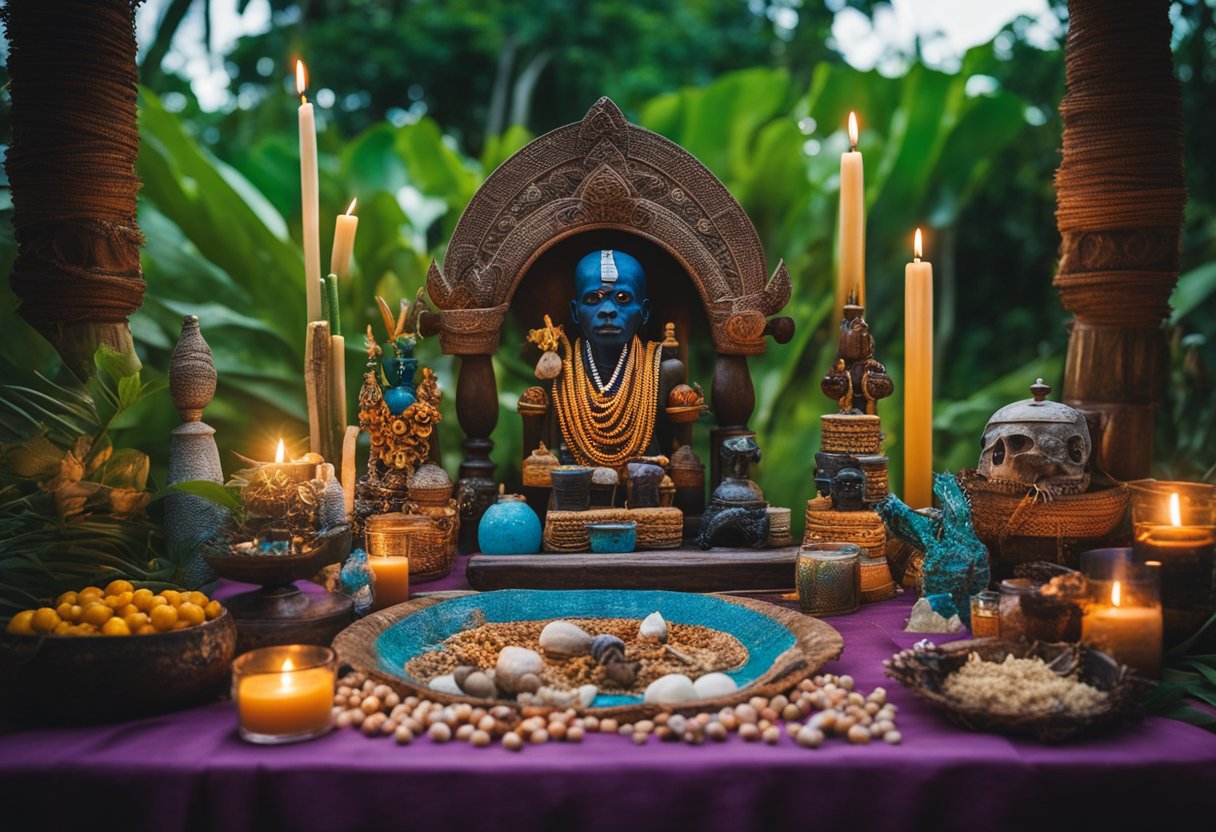
In the face of globalisation and evolving cultural landscapes, the preservation of Voodoo in Haiti remains a matter of both spiritual continuity and national identity. We understand that Voodoo, as an intrinsic aspect of Haitian culture, faces challenges that necessitate conscientious efforts to sustain its practices.
Education: We recognise the imperative role of education in dispelling misconceptions about Voodoo. Initiatives are in place to educate both locals and the wider world about the religion’s true nature—a syncretism of African spiritual beliefs and Catholicism encompassing a rich tapestry of rituals and ancestral veneration.
- Spirituality & Healing: The spiritual core of Voodoo, centred on healing and community support, continues to thrive. Rituals are paramount, serving not just as a means of spiritual communion but also as a platform for social cohesion and psychological well-being.
- Preservation: To preserve this valuable heritage, we advocate the documentation of oral traditions and the support of Vodouizan—practitioners of Voodoo. This effort ensures the survival of ritualistic knowledge and ceremonies integral to Haitian Voodoo.
- Haitian Culture: We celebrate the interweaving of Voodoo in various aspects of Haitian life, from music to daily customs. Our collective commitment is to keep these traditions alive and relevant, which in turn fortifies our national identity.
The future of Voodoo is tied to our dedication to these preservative measures. We embrace its potential for cultural and spiritual resurgence, affirming its significant role in shaping a culturally rich and diverse society. Our mission is to ensure that Voodoo remains a vibrant part of our shared cultural repertoire for generations to come.
Frequently Asked Questions
We aim to shed light on the core tenets and rituals of Haitian Vodou, a deeply spiritual and often misunderstood religion, revealing its historical significance and clarifying common misconceptions.
What are the core beliefs of Haitian Vodou?
Haitian Vodou centres on the worship of spirits known as Lwa and the belief that these spirits can intercede in daily life. It’s a monotheistic religion with a supreme deity, Bondye, who is beyond regular human contact.
How do Vodou rituals and ceremonies typically proceed?
Vodou ceremonies are led by priests or priestesses and often involve drumming, singing, and dancing. Possession by the Lwa is a sought-after spiritual experience, connecting participants directly with the spiritual realm.
In what ways did Vodou influence the Haitian Revolution?
Vodou served as a unifying force among enslaved Africans, providing a shared identity and spiritual backbone that fuelled the uprising leading to Haiti’s independence. The spiritual practices were integral in rallying the masses.
What is the historical development of Vodou as a religion in Haiti?
Originating with enslaved West Africans, Vodou developed in Haiti through syncretism with Roman Catholicism and the island’s indigenous traditions. It has a long history stretching back thousands of years, and it has African roots.
How do Haitian Vodou practices differ from the popular depictions of Voodoo?
Popular depictions often portray Voodoo as dark or malevolent; however, actual Vodou practices are community-centered and focus on healing and justice. Misconceptions such as “Voodoo dolls” are not an accurate reflection of Vodou’s true nature.
Who are the principal deities worshipped in Haitian Vodou?
The principal entities in Vodou are the Lwa, with figures like Papa Legba, the gatekeeper of the spirit world, and Erzulie Freda, the Lwa of love and beauty, being central to worship and ritual practices. Each Lwa has its own domain, personality, and rituals associated with their veneration.


